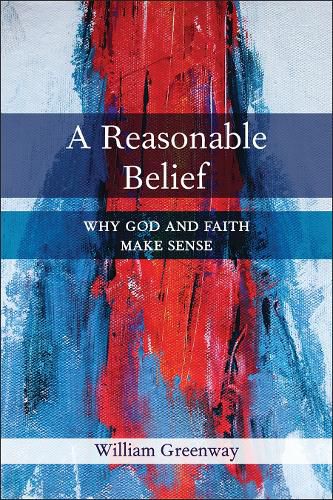Readings Newsletter
Become a Readings Member to make your shopping experience even easier.
Sign in or sign up for free!
You’re not far away from qualifying for FREE standard shipping within Australia
You’ve qualified for FREE standard shipping within Australia
The cart is loading…






This title is printed to order. This book may have been self-published. If so, we cannot guarantee the quality of the content. In the main most books will have gone through the editing process however some may not. We therefore suggest that you be aware of this before ordering this book. If in doubt check either the author or publisher’s details as we are unable to accept any returns unless they are faulty. Please contact us if you have any questions.
Insofar as the essence of this philosophical spirituality is continuous
with the essence of Christian spirituality, I am able to specify how … we can be
utterly confident that it is wholly reasonable and good to affirm, give thanks for,
live, and testify to faith in God. < br />from the
preface
While it’s clear that a lot of people believe in God,
whether they should is a matter of loud debate. Since the Enlightenment, and
especially in the last 150 years, a consensus has been building in Western
philosophy that belief in a transcendent orderand especially in a supreme
beingis unreasonable and should be abandoned. The result of this trend
has been to delegitimize religious belief, to claim that those who believe do so
against scientific evidence and rational thought.
In this
confident and sensitive book, William Greenway carefully guides the reader through
the developments in Western intellectual life that have led us to assume that belief
is irrational. He starts by demonstrating that, along with belief in God, modern
definitions of human rationality have also rejected free will and moral agency. He
then questions the Cartesian assumption that it is our ability to think that makes
us most human and most real. Instead, Greenway explains, it is our capacity to be
grasped by the lives and needs of others that forms the heart of who we are. From
that vantage point we can see that faith is not a choice we make in spite of
evidence to the contrary; it is, rather, wholly rational and in keeping with that
which makes us most human. Every person who either has faith or is contemplating
faith can be assured that belief in God is both reasonable and good. Greenway
embraces both contemporary philosophy and science, inviting readers into a more
confident experience of their faith.
$9.00 standard shipping within Australia
FREE standard shipping within Australia for orders over $100.00
Express & International shipping calculated at checkout
This title is printed to order. This book may have been self-published. If so, we cannot guarantee the quality of the content. In the main most books will have gone through the editing process however some may not. We therefore suggest that you be aware of this before ordering this book. If in doubt check either the author or publisher’s details as we are unable to accept any returns unless they are faulty. Please contact us if you have any questions.
Insofar as the essence of this philosophical spirituality is continuous
with the essence of Christian spirituality, I am able to specify how … we can be
utterly confident that it is wholly reasonable and good to affirm, give thanks for,
live, and testify to faith in God. < br />from the
preface
While it’s clear that a lot of people believe in God,
whether they should is a matter of loud debate. Since the Enlightenment, and
especially in the last 150 years, a consensus has been building in Western
philosophy that belief in a transcendent orderand especially in a supreme
beingis unreasonable and should be abandoned. The result of this trend
has been to delegitimize religious belief, to claim that those who believe do so
against scientific evidence and rational thought.
In this
confident and sensitive book, William Greenway carefully guides the reader through
the developments in Western intellectual life that have led us to assume that belief
is irrational. He starts by demonstrating that, along with belief in God, modern
definitions of human rationality have also rejected free will and moral agency. He
then questions the Cartesian assumption that it is our ability to think that makes
us most human and most real. Instead, Greenway explains, it is our capacity to be
grasped by the lives and needs of others that forms the heart of who we are. From
that vantage point we can see that faith is not a choice we make in spite of
evidence to the contrary; it is, rather, wholly rational and in keeping with that
which makes us most human. Every person who either has faith or is contemplating
faith can be assured that belief in God is both reasonable and good. Greenway
embraces both contemporary philosophy and science, inviting readers into a more
confident experience of their faith.